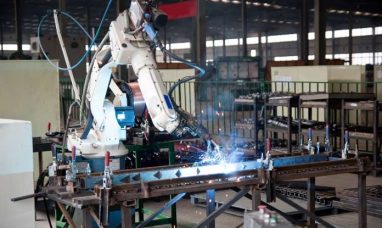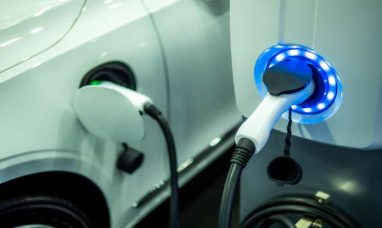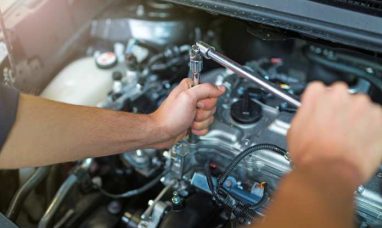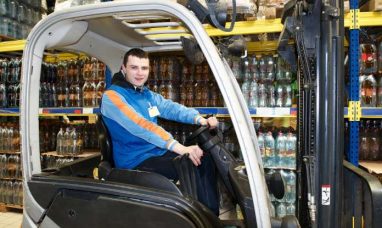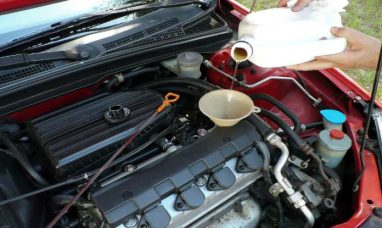CHICAGO, July 21, 2023 /PRNewswire/ — Automotive seat market is estimated to grow from USD 53.7 billion in 2023 to USD 58.4 billion by 2030 at a CAGR of 1.2% over the forecast period, according to a new report by MarketsandMarkets™. The increasing demand for mid- & full-size SUVs and luxury cars has impacted the automotive seating industry. It has led to the development of seating systems with advanced features, increased capacity, customization options, and safety and comfort features. According to MarketsandMarkets analysis, the full-sized SUVs contributed ~16% to the total passenger cars production in 2022, which would increase to 3.8% by 2027. Similarly, luxury cars contributed 3.4% of total passenger car production in 2022, accounting for 2.7% in 2019 and growing steadily. The growth of these SUVs and luxury cars would be observed in countries – China, US, Germany, Japan, and the UK- hence, these countries would act as the potential markets for automotive seats in coming years.
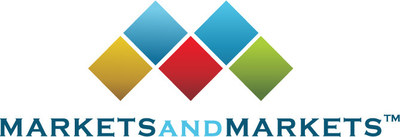
Download PDF Brochure: https://www.marketsandmarkets.com/pdfdownloadNew.asp?id=216812760
Browse in-depth TOC on “Automotive Seat Market“.
364 – Tables
74 – Figures
316 – Pages
Automotive Seat Market Scope:
|
Report Coverage |
Details |
|
Market Size |
USD 58.4 billion by 2030 |
|
Growth Rate |
1.2% of CAGR |
|
Largest Market |
Asia Pacific |
|
Market Dynamics |
Drivers, Restraints, Opportunities & Challenges |
|
Forecast Period |
2023-2030 |
|
Forecast Units |
Value (USD Billion) |
|
Report Coverage |
Revenue Forecast, Competitive Landscape, Growth Factors, and Trends |
|
Segments Covered |
by Type & Technology (Powered, Heated, Ventilated, Memory, Massage), Seat Trim OE & Aftermarket (Synthetic & Genuine Leather, Fabric), Frame, Component, Vehicle EV, OHV, ATV, LSV) |
|
Geographies Covered |
Asia Pacific, Americas, Europe, and Middle East & Africa |
|
Report Highlights |
Updated financial information / product portfolio of players |
|
Key Market Opportunities |
Growing focus on autonomous cars and increasing preference for ride sharing |
|
Key Market Drivers |
Rising demand for powered seats in mid-segment cars & SUVs |
Powered seats are the fastest-growing technology in automotive seats.
Powered seats are the fastest-growing market in technology, with a CAGR of 4.9% from 2022 to 2030. These seats are usually installed in the front row of the vehicle. The key reason is that this is one of the basic technologies compared with other technologies like massage, memory, heated/ventilated seats, etc. The key reason for this technology’s growth is increased demand for SUVs, as SUVs are known for their spacious interiors and higher seating positions, which often require adjustable seats to accommodate drivers and passengers of different heights and preferences. Entry or Mid-segment cars are usually equipped with basic powered seats (limited number of adjustments, such as fore and aft, up and down, and recline).
In contrast, mid-segment cars use intermediate-powered seats (more adjustments, such as lumbar support and headrest position). Luxury cars have powered seats with other functions such as heating, ventilation, and massage. With the consumer trend shifting from hatchbacks to compact and mid-size vehicles, the demand for powered seats is set to grow in coming years, where Europe is projected to be the fastest growing market and Asia Pacific is expected to be the largest market for powered seats.
Models which are equipped with powered seats are Hyundai Tucson, Kia Sportage, Toyota RAV4, Honda CR-V, and Mazda CX-5. These powered seats are becoming increasingly popular in automobiles, as they offer several advantages over traditional seats and are expected to grow steadily in the coming years; many automakers are offering these seats as standard or optional features in their vehicles.
Steel is expected to hold the largest market share in the automotive seat frame material market by 2030.
The St-37 steel profile, which has a 2.5 mm thickness, is the most popular material for seat chassis construction. Typically composed of St-37 sheet metal and welded to the seat chassis, the beam supports the seat construction and maintains it fastened to the car’s underneath. Apart from molding ability, steel also provides strength & durability, cost-effectiveness and is well suited for mass production as it can be easily formed, stamped, and welded. The most important reason is its crashworthiness, as its high energy-absorbing capacity can absorb and distribute impact forces during a collision, providing enhanced safety for vehicle occupants. Steel is the best-suited material due to other factors, such as lightweight, low cost, and recyclability. Considering all these benefits, steel/advanced high-strength steel is expected to be the leading material for automotive seat structures.
Asia Pacific region is estimated to be the dominant automotive seat market.
The Asia Pacific region leads the automotive industry, and the key contributing countries are China, India, Japan, and others. These markets are characterized by strong economic growth and rising incomes, leading to increased demand for passenger vehicles. Several significant vehicle seat producers, including Johnson Controls, Faurecia, and Lear Corporation, are in Asia-Pacific. This region has a large consumer base with rising demand for passenger and commercial vehicles, which drives the need for automotive seats industry.
The Asia Pacific region offers cost advantages for automotive seat manufacturing. It benefits from relatively lower labor and production costs, which attract automotive seat manufacturers to set up regional production facilities. For instance, in September 2022, Shenzhen Faurecia Automotive Parts Co., Ltd., a joint venture between Faurecia and BYD, opened its sixth factory at Xiatang Industrial Park in Hefei City, the capital of Anhui province. This cost-competitiveness and expansion have contributed to the market’s growth in Asia Pacific. Local seat manufacturers and suppliers in Asia Pacific enhance the region’s position in the market. These manufacturers cater to the demands of regional automakers, providing them with a competitive advantage in terms of pricing, supply chain, and customization options.
According to OICA, the top 10 countries contributed 80% of global car production in 2022. China contributes ~34% to the total output of car production. The most significant car types sold in China are SUVs and luxury cars, contributing ~49% and ~14%, respectively. According to a report by the China Association of Automobile Manufacturers (CAAM), the market for SUVs in China is expected to grow at a compound annual growth rate (CAGR) of 8.7% from 2022 to 2027. China has many affordable 7-seater and 5-seater SUVs, making them more accessible to a broader range of consumers. SUVs are becoming popular in urban areas as these vehicles offer comfort, featured seats, and connected features. Countries like India and Japan are also significant contributors to global car production; India produced 3.2 million vehicles, while Japan produced 9.1 million in 2022. This makes India the fifth-largest car producer in the world and Japan the third largest. Asia Pacific is home to some of the world’s largest car manufacturers, such as Toyota, Honda, and Hyundai, constantly expanding their production capacity and has increased demand for comfortable and luxurious vehicles, driving the demand for premium automotive seats.
Inquire Before Buying: https://www.marketsandmarkets.com/Enquiry_Before_BuyingNew.asp?id= 216812760
Key Market Players:
The major players in Automotive Seats Companies include Adient Plc (US), Faurecia (France), Lear Corporation (US), Toyota Boshoku Corporation (Japan), and Magna International (Canada)
Recent Developments:
- In April 2023, Faurecia announced the development of its Zero-Gravity Captain Chair, a rear passenger seating solution that delivers advanced well-being tailored for the Chinese market. Inspired by NASA’s space exploration, the seat can be set to a “zero gravity” position, which reclines it to an almost flat angle.
- In April 2023, Faurecia introduced the new “Skin Light Panel” that offers weight reduction, extra room for rear passengers, improved recyclability, and cost savings. This new Skin Light Panel also delivers perfect integration into the complete seat, including rear airbag management. The seating panel has a smooth finish, high-performance scratch-resistance material, and life-long durability.
- Lear Corporation has announced the strategic acquisition of InTouch Automation, a supplier of Industry 4.0 technologies and complex automated testing equipment critical in producing automotive seats. InTouch’s product portfolio allows Lear Corporation to collect and analyze real-time data while standardizing testing procedures throughout its just-in-time (JIT) seating production process.
- In October 2022, Lear Corporation announced that the company’s premium and fully recyclable ReNewKnit sueded material will launch in seating and door panel applications with a global automaker in 2024. ReNewKnit is a Lear Corporation exclusive, first-to-market automotive textile that is fully recyclable at its end of life. ReNewKnit will strengthen the company’s sustainable solutions technology portfolio while supporting our carbon reduction goals.
- In April 2022, Toyota Boshoku developed an IoT (Internet of Things) seat cover equipped with a system that assesses the driver’s fatigue and mitigates sleepiness during driving and started a demonstration test for transport companies.
Get 10% Free Customization on this Report: https://www.marketsandmarkets.com/requestCustomizationNew.asp?id=216812760
Browse Adjacent Market: Automotive and Transportation Market Research Reports & Consulting
Related Reports:
Automotive Upholstery Market – Global Forecast to 2025
Automotive Interior Market – Global Forecast to 2027
Automotive Lightweighting Market – Global Forecast to 2027
Electric Vehicle Plastics Market – Global Forecast to 2027
About MarketsandMarkets™:
MarketsandMarkets™ is a blue ocean alternative in growth consulting and program management, leveraging a man-machine offering to drive supernormal growth for progressive organizations in the B2B space. We have the widest lens on emerging technologies, making us proficient in co-creating supernormal growth for clients.
The B2B economy is witnessing the emergence of $25 trillion of new revenue streams that are substituting existing revenue streams in this decade alone. We work with clients on growth programs, helping them monetize this $25 trillion opportunity through our service lines – TAM Expansion, Go-to-Market (GTM) Strategy to Execution, Market Share Gain, Account Enablement, and Thought Leadership Marketing.
Built on the ‘GIVE Growth’ principle, we work with several Forbes Global 2000 B2B companies – helping them stay relevant in a disruptive ecosystem. Our insights and strategies are molded by our industry experts, cutting-edge AI-powered Market Intelligence Cloud, and years of research. The KnowledgeStore™ (our Market Intelligence Cloud) integrates our research, facilitates an analysis of interconnections through a set of applications, helping clients look at the entire ecosystem and understand the revenue shifts happening in their industry.
To find out more, visit www.MarketsandMarkets™.com or follow us on Twitter, LinkedIn and Facebook.
Contact:
Mr. Aashish Mehra
MarketsandMarkets™ INC.
630 Dundee Road
Suite 430
Northbrook, IL 60062
USA: +1-888-600-6441
Email: [email protected]
Research Insight: https://www.marketsandmarkets.com/ResearchInsight/automotive-seat-market.asp
Visit Our Website: https://www.marketsandmarkets.com/
Content Source: https://www.marketsandmarkets.com/PressReleases/automotive-seat.asp
Logo: https://mma.prnewswire.com/media/660509/MarketsandMarkets_Logo.jpg
![]() View original content:https://www.prnewswire.com/news-releases/automotive-seat-market-worth-58-4-billion-by-2030—exclusive-report-by-marketsandmarkets-301882832.html
View original content:https://www.prnewswire.com/news-releases/automotive-seat-market-worth-58-4-billion-by-2030—exclusive-report-by-marketsandmarkets-301882832.html
SOURCE MarketsandMarkets

Featured image: MegaPixl © Elnur









